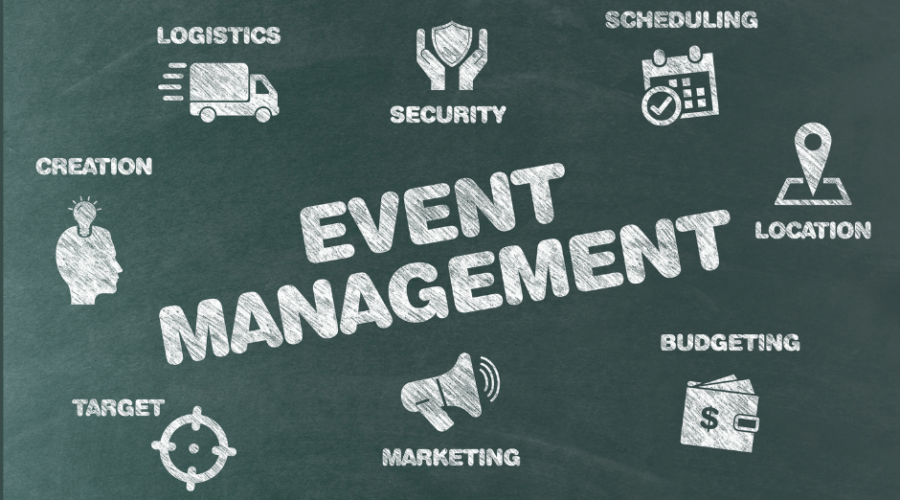What is the Function of Event Management?
Table of Contents
The Function of Event Management: A Comprehensive Guide
Introduction
Have you ever wondered what goes on behind the of a flawlessly executed event? From small family gatherings to large corporate conferences, the magic of event management ensures that every detail is seamlessly managed. In this article, we will delve into the essential of event management, exploring each facet in detail. By the end, you’ll gain a deeper understanding of why this field is both an art and a science essential in creating unforgettable experiences.
Understanding Event Management
Event management is a multifaceted discipline that involves the planning, organizing, and executing of events. While many people might think it’s just about booking a venue and sending out invitations, there’s so much more to it.
What Does Event Management Entail?
Event management comprises several core functions, each critical to the process:
-
Planning and Strategizing: Defining the scope, objectives, and target audience of the event.
-
Organizing and Coordinating: Arranging logistics, including venue booking, catering, and transportation.
-
Implementing and Executing: Overseeing the actual event day activities to ensure everything runs smoothly.
-
Evaluating and Reporting: Assessing the event’s success and areas for improvement.
Key Functions of Event Management
Planning and Strategizing
Planning is the cornerstone of successful event management.
Setting Objectives
Before any concrete steps can be taken, clear objectives must be defined. This involves:
-
Identifying the purpose of the event (e.g., celebrate, educate, promote).
-
Understanding the target audience and their expectations.
-
Establishing measurable goals, such as attendance numbers or fundraising targets.
Budgeting
Creating a detailed budget helps prevent overspending and ensures resources are allocated efficiently. Key aspects include:
-
Estimating costs for each component of the event.
-
Allocating funds for unexpected expenses.
-
Regularly reviewing and adjusting the budget as necessary.
Organizing and Coordinating
Once the planning phase is complete, the focus shifts to organizing the logistics.
Venue Selection
Choosing the right venue can make or break an event. Factors to consider include:
-
Capacity and layout to suit the event type.
-
Accessibility for attendees with varying needs.
-
Availability of essential facilities such as parking and restrooms.
Vendor Management
Efficient vendor management is crucial for providing high-quality services. This involves:
-
Researching and selecting reliable vendors.
-
Negotiating contracts to secure the best deals.
-
Maintaining constant communication to ensure timely delivery of services.
“The art of event management lies in the details – from choosing the perfect venue to selecting the right menu, every element plays a pivotal role.”
Implementing and Executing
The execution phase is where all the planning comes to life.
On-Site Management
Effective on-site management ensures the event runs without a hitch. Key responsibilities include:
-
Coordinating with staff and volunteers.
-
Managing the event schedule to maintain seamless transitions between activities.
-
Addressing any issues or emergencies promptly.
Guest Engagement
Ensuring guests are engaged and satisfied is crucial. Tactics include:
-
Creating interactive activities and experiences.
-
Providing high-quality food and entertainment.
-
Collecting real-time feedback to make immediate improvements if necessary.
Evaluating and Reporting
Post-event evaluation is an essential step for continuous improvement.
Feedback Collection
Gathering feedback from attendees, staff, and stakeholders can provide valuable insights:
-
Using surveys and questionnaires to collect quantitative and qualitative data.
-
Hosting debrief meetings with the event team to discuss what worked well and what didn’t.
Performance Analysis
Analyzing the event’s performance against the set objectives helps gauge its success:
-
Reviewing financial performance against the budget.
-
Assessing attendee satisfaction and engagement levels.
-
Identifying areas of improvement for future events.
Conclusion
Event management is a dynamic field that requires meticulous planning, nimble organization, and decisive execution. From setting clear objectives and budgeting to on-site coordination and post-event evaluation, every stage is integral to crafting memorable experiences. By understanding these functions, we can better appreciate the complexity and skill involved in bringing events to life.
So the next time you attend a seamlessly managed event, take a moment to recognize the intricate tapestry of effort, coordination, and expertise behind it. Whether you’re looking to pursue a career in event management or simply want to plan a successful event, these insights will equip you with the foundational knowledge needed to excel. You may find some event planners on our website.
Did you find this article helpful? Have you had any experiences in event management that you’d like to share? Leave your comments below or reach out to us on our social media – we’d love to hear from you!



